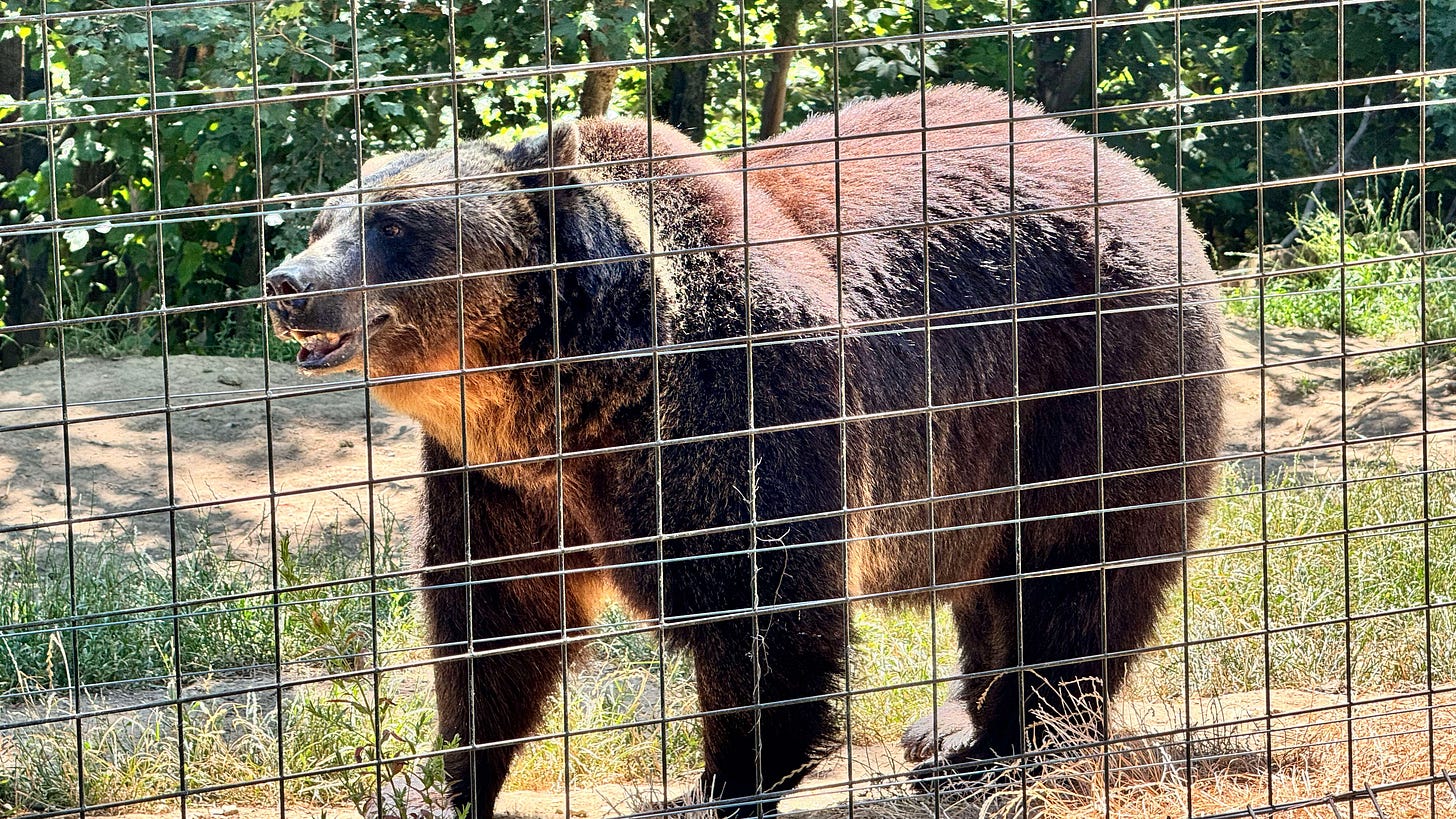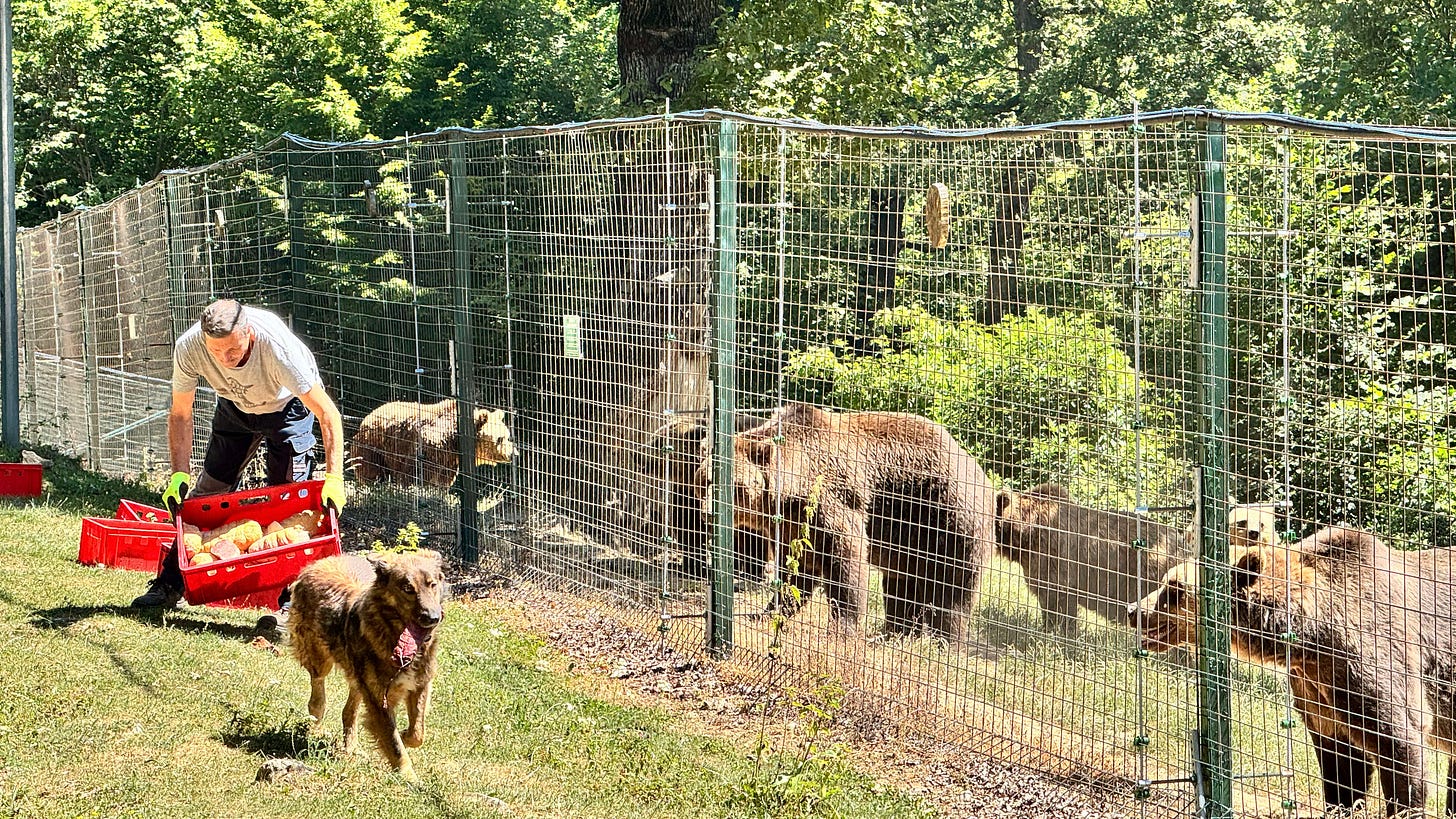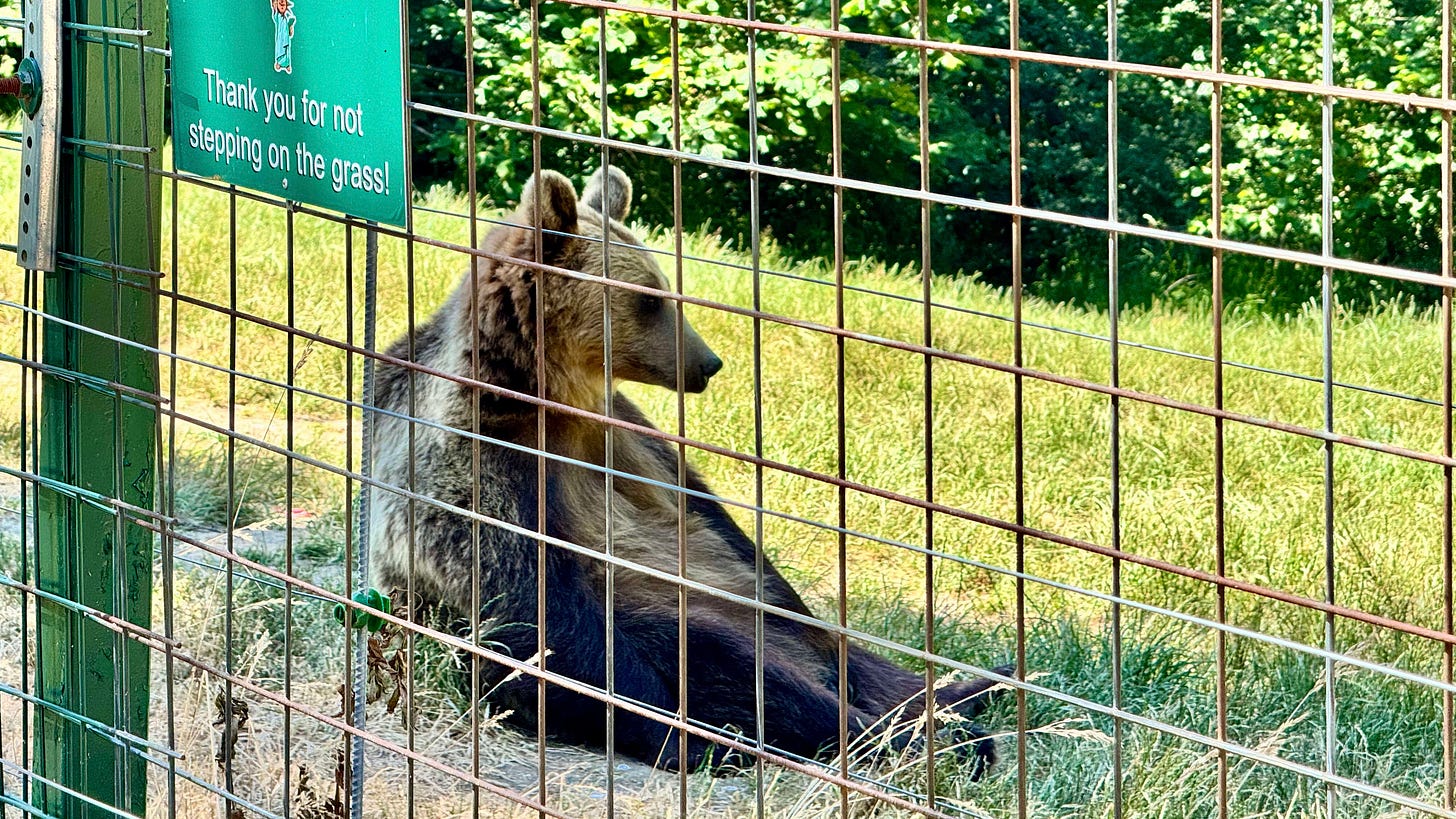Halfway into the two-hour visitation window at Libearty, a sanctuary ambassador stops and motions to a lumbering brown mass: “That one’s Misha,” he beams with quiet pride. “Rescued from the Kharkov zoo after the war began. He’s a good boy.”
Misha, the good boy in question, is 600 pounds of muscle and inertia. He’s paw-deep in a heap of apples and salmon fillet that were just lobbed over the fence at 10am, a small portion of the two tons of food flung by hand each day. The feeding takes four hours over 170 acres of forest. Bears don’t hibernate here. They have no reason to.
“In the wild, they might make it 20 years. Here? They live to 40, sometimes 45. No starvation. No stress. They even get ice cream on hot days.”
A child gasps. “Ice cream? Really?”
“Oh yes,” the ambassador says. “Bears eat almost anything.”
The visitors laugh. Separating the bears from the public is an end-to-end electric fence. It’s four meters high and one meter deep into the earth, ringed with shock wire.
“They only have to learn once,” the ambassador says, matter-of-fact.
But Misha doesn’t look like a prisoner. Actually, he looks like a king, I think as I watch Misha finish an entire loaf of bread in one chomp, a melon, some more sausage links, and the crust of something probably meant for a Carrefour bakery shelf.
Bears here have won the lottery. Some were born into captivity: circuses, roadside zoos, restaurant mascots, all banned on condition of joining the E.U. in 2007. Others were orphaned after their mothers were shot for scavenging near village bins. One was chained in a metal cage so small it stunted his spine. Misha arrived during the war, smuggled out of Ukraine near the Russian border.
The sanctuary saved their lives, but ended their possibility of freedom. Because bears who’ve acclimated to humans can’t return to the wild; they lose the instinct for fear. They enter homes, break into fridges, don’t know when to run. They are, as is often asked by visitors, “very dangerous if they get out.”
This is the structure of the bargain: eternity in the buffet line comes with a bracelet.
We watch as the last watermelon is catapulted over the fence with the precision of a practiced shot‑putter. An employee taps the fencepost absently, the crackle of electricity pulsing beneath his fingers. A father reaches for a cigarette. The truck rumbles to the next enclosure. The gate, inevitably, rolls shut behind us.
Misha and his 127 fellow bears nap in the summer sun, free from hunger.






